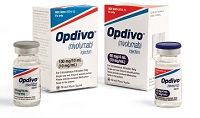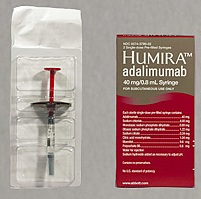 No question, immuno-oncology drugs are the hottest tickets in cancer--and among the hottest across the board. But PD-1/PD-L1 treatments, including Merck & Co.'s ($MRK) Keytruda and Bristol-Myers Squibb's ($BMY) Opdivo, aren't the first to bear big sales expectations. How do immuno-oncology forecasts stack up against other notable drug launches?
No question, immuno-oncology drugs are the hottest tickets in cancer--and among the hottest across the board. But PD-1/PD-L1 treatments, including Merck & Co.'s ($MRK) Keytruda and Bristol-Myers Squibb's ($BMY) Opdivo, aren't the first to bear big sales expectations. How do immuno-oncology forecasts stack up against other notable drug launches?
That's the question Evercore ISI analyst Mark Schoenebaum set out to answer with a series of analyses. Compared with 10 top-selling drugs, the immuno-oncology group has the third-steepest launch curve, outdone only by Gilead Sciences' ($GILD) hep C wonder Sovaldi and Pfizer's ($PFE) behemoth statin Lipitor. And the cancer meds pass even Lipitor four years out.
The advantage is even bigger compared with other cancer drugs: The new immuno-oncology wave takes a couple of years to match the launch of Roche's ($RHHBY) blockbuster cancer-fighter Avastin, but after that, it's just a few more years to almost $16 billion in sales.
 That's comparing these oncology meds with single drug launches, though. Looking at groups of meds, the results are more closely matched. Take treatments for autoimmune disorders such as AbbVie's ($ABBV) Humira and Amgen ($AMGN) and Pfizer's Enbrel. The new immuno-oncology therapies speed past $15 billion more quickly than the top three anti-inflammatories combined--but the launch curves quickly turn parallel. Matched up with diabetes fighters in the DPP-4 class--including Merck's top-selling Januvia--the immuno-oncology drugs run right along DPP-4's sales curve for the first three years, but then go up, up and away as the DPP-4 growth levels out.
That's comparing these oncology meds with single drug launches, though. Looking at groups of meds, the results are more closely matched. Take treatments for autoimmune disorders such as AbbVie's ($ABBV) Humira and Amgen ($AMGN) and Pfizer's Enbrel. The new immuno-oncology therapies speed past $15 billion more quickly than the top three anti-inflammatories combined--but the launch curves quickly turn parallel. Matched up with diabetes fighters in the DPP-4 class--including Merck's top-selling Januvia--the immuno-oncology drugs run right along DPP-4's sales curve for the first three years, but then go up, up and away as the DPP-4 growth levels out.
So, did any class of meds beat the high expectations now resting on immuno-oncology? Yes indeed. The cholesterol-fighting statin drugs, including Lipitor and AstraZeneca's ($AZN) Crestor, all together hit $10 billion after only three years or so on the market--and kept rocketing upward for a half-dozen years after that to reach almost $35 billion as a class.
Statins are among the most broadly used drugs on the planet, however--prescribed by primary-care doctors to millions of patients with high cholesterol, and most of those patients then take statins every day of their lifetimes. The population of cancer patients is much, much smaller, and therapy tends to be short-lived. Even at their much higher prices--$150,000 or so for Merck's Keytruda and Bristol-Myers Squibb's Opdivo, for instance--matching statins would be quite a feat.
It's not only Merck and Bristol-Myers set to share in that expected haul, of course. Roche has its own immuno-oncology candidate marching to market, with AstraZeneca coming up behind. Pfizer and Merck KGaA have teamed up on yet another. When the class does hit $15 billion and beyond--some analysts see $33 billion by 2022--no single drug may surpass Pfizer's record annual sales of Lipitor, which peaked at $13.7 billion.
Special Report: Top 10 best-selling cancer drugs of 2013 | Top 15 pharma companies by 2014 revenue - Merck - Bristol-Myers Squibb - Roche - AstraZeneca
Editor's note: This story was corrected to show that Pfizer's immuno-oncology partner is Merck KGaA, rather than Boehringer Ingelheim.